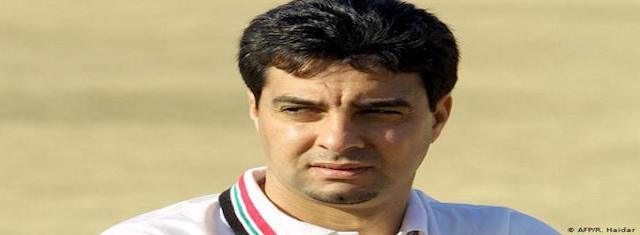Sports
Iraqi football great Ahmed Radhi dies after contracting coronavirus
Sport News

Cover issue
USPA NEWS -
The former forward, 56, scored 62 goals in 121 appearances for his national team before retiring from international football in 1997
Ahmed Radhi, one of Iraq´s most celebrated former footballers, has died as a result of complications arising from Covid-19, the health ministry said.
Ahmed Radhi, one of Iraq´s most celebrated former footballers, has died as a result of complications arising from Covid-19, the health ministry said.
The former forward, 56, scored 62 goals in 121 appearances for his national team before retiring from international football in 1997. His strike against Belgium at the 1986 World Cup remains his country´s only goal scored at a global finals.
Radhi, who won five Iraqi league titles across spells with Al Rasheed and Al Zawraa, was voted Asian player of the year in 1988. He is the only Iraqi to be awarded that honour.
He had been hospitalised last week in Baghdad after testing positive for coronavirus but had checked out on Thursday after his condition improved.
But he relapsed a few hours later and was readmitted but passed away early Sunday.
Radhi, who won five Iraqi league titles across spells with Al Rasheed and Al Zawraa, was voted Asian player of the year in 1988. He is the only Iraqi to be awarded that honour.
He had been hospitalised last week in Baghdad after testing positive for coronavirus but had checked out on Thursday after his condition improved.
But he relapsed a few hours later and was readmitted but passed away early Sunday.
"With great sadness and sorrow, we mourn our lifelong companion, our fans' ardent star, the unrivalled athlete and son of Iraq, Ahmed Radhi," said Iraq's new sports minister Adnan Darjal, himself a former footballer.
"Farewell, Abu Faisal, goodbye to my brother Ahmed Radhi," wrote former star and Iraqi League President Hussein Saeed.
The director of Jordan's Football Association Ali Al-Hussein said the world had lost "a sports star whom we cherish and are proud of".
Born in Baghdad, Radhi called time on his club career in 1999 before spending a brief stint in management. As a player with the Iraq national team, he was part of the side that won gold at the 1982 Asian Games and then the Gulf Cup in 1984 and 1988. Radhi played all three of Iraq´s matches at the 1988 Olympics in Seoul, scoring against Zambia and Guatemala.
Radhi is Iraq´s joint-third most capped player of all time, while he sits second on their all-time list for goal scorers, behind former teammate Hussein Saeed.
Liability for this article lies with the author, who also holds the copyright. Editorial content from USPA may be quoted on other websites as long as the quote comprises no more than 5% of the entire text, is marked as such and the source is named (via hyperlink).





